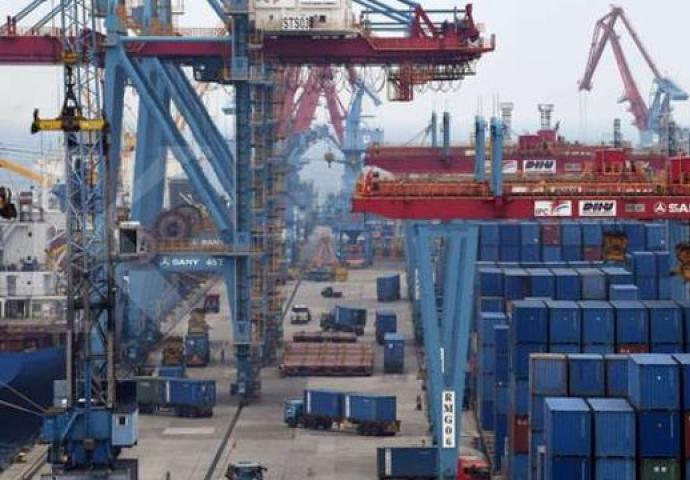News
Jambi achieved US$211.35 million surplus in December 2024
WINDONESIA February 13, 2025 (jambilink.id)
(jambilink.id)
Jambi's export value rose by 6.83 percent month-to-month (mtm) from US$203.13 million in November 2024 to US$216.99 million in December 2024. The increase in exports was driven by high global demand for several of Jambi's leading commodities, including oil and gas, coal, rubber and its derivatives, vegetable oil, and fishery products such as fish and shrimp.
"Cumulatively, Jambi's export value throughout 2024 reached US$2.34 billion - an increase of 6.74 percent compared to the same period in 2023. It shows that the competitiveness of Jambi products in the international market is still very strong," said (Statistics Indonesia) BPS Jambi Province Head Agus Sudibyo in his official statement on Feb. 3, 2025.
Singapore is the largest export destination for Jambi according to BPS data, with a transaction value reaching US$78.33 million that was dominated by oil and gas exports. The increase in coal and fishery exports to Asian countries also strengthens Jambi's position as a province with strategic export contribution in the natural resources sector.
Thailand, Japan, Malaysia, and China are also Jambi's main export markets. Thailand and Japan mainly bought a considerable amount of processed rubber, while Malaysia imported vegetable oil and China is Jambi's main destination for coal exports.
However, Jambi's imports have also shown a significant increase, soaring by 20.48 percent mtm from US$4.68 million in November 2024 to US$5.64 million in December 2024. The increase in imports mostly came from chemicals, machinery, and transportation equipment which are used for domestic industrial needs.
Jambi's five largest import countries of origin in December 2024 were China, Singapore, South Korea, Taiwan, and Finland. China is the largest import country of origin, with its export value to Jambi reaching US$2.04 million. China supplies many industrial equipment and manufacturing raw materials to the province.
With exports continuing to grow and imports still within reasonable limits, Jambi's balance of trade (BoT) surplus rose from US$169.3 million in December 2023 to US$211.35 million in December 2024. The increase shows that Jambi has succeeded in maintaining its economic stability by relying on exports, especially from the plantation, mining, and fisheries sectors.
Agus emphasized that Jambi's achievement is an indication that the province's economy is getting stronger, although global challenges such as commodity price fluctuations and the instability of the rupiah's exchange rate are still factors that must be anticipated.
However, the main challenge still faced by Jambi is its dependence on raw material commodities, such as coal, rubber, and vegetable oil. Industrial downstreaming is an important factor to increase the added value of Jambi products in the global market.
Universitas Jambi economist Ardiansyah highlighted the importance of developing the manufacturing sector and downstreaming export commodities to reduce dependence on raw material prices in the global market.
"We need to develop industries based on rubber, palm oil, and other agricultural products so that Jambi's exports do not only rely on raw materials, but also derived products with high added value," he explained.
Another challenge for Jambi is the need to increase export market access to Europe and America. So far, Jambi's exports have relied more on Asian countries, while market opportunities in the European Union and America have not been optimally exploited.
The Jambi Provincial Government is also encouraging diversification of export products, including fishery and agricultural products, which are believed to have great potential in the international market.
BPS is optimistic that this positive trend will continue in 2025 ased on Jambi's export achievements in 2024, especially with several supporting factors, such as high global demand for palm oil, rubber, and coal; new investment in the manufacturing sector that are starting to develop in Jambi; as well as the government's efforts to increase international trade cooperation and open new markets outside Asia.
The Jambi Provincial Government sought to raise exports through various strategies, such as accelerating the development of the province's logistics infrastructure, expanding export markets to non-traditional countries, and encouraging trade digitalization so that business actors could more easily reach the global market.
With various strategic steps it has taken, Jambi is projected to continue to experience an increase in BoT surplus while strengthening its competitiveness at the international stage.
"The increase in BoT surplus is an important factor for Jambi to strengthen its regional economy and improve it people's welfare," concluded Agus.

